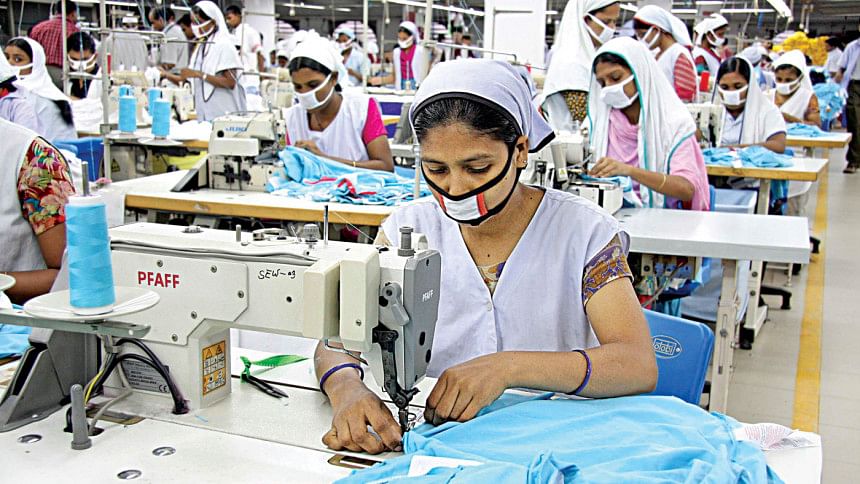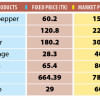RMG makers offer discounted groceries to workers

Some garment manufacturers are providing basic commodities to their workers at discounts opening shops on factory premises, bringing some relief amidst the skyrocketing of prices in the local markets.
The prices at these shops can be as much as 15 per cent lower than local market rates while products can be purchased on credit for the bills to be adjusted with salaries disbursed at the end of the month.
Every month Jhorna Akter, an operator at Tarasima Apparels, buys some grocery items like lentil, sugar and noodles from such a shop financed by her employers.
Last month she bought goods worth Tk 2,000 and this month she bought some items worth Tk 600.
"Goods are sold at lower prices at the fair price shop. I can buy lentil at Tk 5 less per kilogramme," she told The Daily Star over the phone.
Rehana Akter, a quality inspector at the Manikganj based export-oriented company, echoed her.
She bought grocery items worth Tk 162 last month. Rice, biscuits, lentil, soap and edible oil are available, she said.
Sirajul Islam Azad, the company's chief human resources officer, said 10 years ago his company launched the shop, named "Aamar Dokan", which looks just like a supermarket.
Some 600 kinds of groceries are available at the shop and the company charges Tk 5 less than the price stated in the packaging by covering it from its own pockets, he said.
This prompts the more than 8,000 workers of the company to avail products there, for which sales on an average day can reach Tk 170,000, he said.
"We have the software with the details of the workers and the purchases are adjusted with their salaries at the end of the month," Azad said.
Another major garment exporting company, DBL Group, runs such shops at eight locations of the factory.
Most of the group's 43,000 workers are buying 400 types of groceries from the shops, said Mohammad Zahid Ullah, chief sustainability officer.
The company sells the goods at the rate it purchases it and so the exclusion of usual expenses such as shop rent enable workers to avail prices lower than that in the markets, he said.
His company also charges the bills at the end of the month during the disbursement of salaries, he added.
Crony Group, a Narayanganj-based garment exporter, also launched such a shop on the factory premises last Saturday which sells daily commodities such as rice, oil, lentils, salt and noodles at discounted rates for its 10,000 or so factory workers.
"The fair price shop does not only save workers money but also their time and provides quality groceries that are difficult to find in informal bazars," said AH Aslam Sunny, managing director, in a statement.
"Since Rana Plaza, we have invested billions of dollars in retrofitting and compliance. We have shown the world we are serious about developing our nation and our people," he said.
"Now, I urge all buyers and suppliers to work together and better the lives of factory workers," he added.
Faruque Hassan, president of the Bangladesh Garment Manufacturers and Exporters Association, said many of the big and regulation-compliant factories were opening such shops but the exact number was yet to be known.
"It is a very good initiative as the workers are getting grocery items at lower prices. The initiative will also cover the deficiency of nutrition as the shops are selling healthy food to the workers," Hassan told The Daily Star over the phone.
He said international retailers and brands were also engaging in this initiative to ensure that it was not the factory managements who solely had to bear the burden.

 For all latest news, follow The Daily Star's Google News channel.
For all latest news, follow The Daily Star's Google News channel. 








Comments